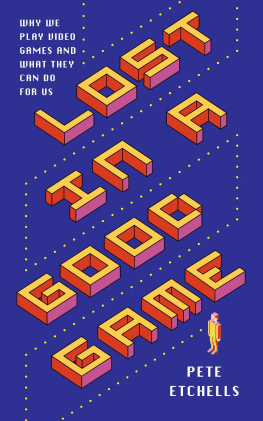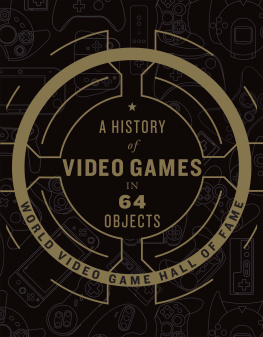The business and culture surrounding video games have not stopped evolving, and neither has researchers understanding of the new issues and debates that come with those changes. The experts in this book lay them all out in clear, well-supported summaries that leave the reader deeply informed.
Jamie Madigan, Author of The Engagement Game: Why Your
Workplace Culture Should Look More Like a Video Game
THE VIDEO GAME DEBATE 2
This student-friendly book provides an accessible overview of the primary debates about the effects of video games. It expands on the original The Video Game Debate to address the new technologies that have emerged within the field of game studies over the last few years.
Debates about the negative effects of video game play have been evident since their introduction in the 1970s, but the advent of online and mobile gaming has revived these concerns, reinvigorating old debates and generating brand new ones. The Video Game Debate 2 draws from the latest research findings from the top scholars of digital games research to address these concerns. The book explores key developments such as virtual and augmented reality, the use of micro-transactions, the integration of loot boxes, and the growth of mobile gaming and games for change (serious games). Furthermore, several new chapters explore contemporary debates around e-sports, gamification, sex and gender discrimination in games, and the use of games in therapy.
This book offers students and scholars of games studies and digital media, as well as policymakers, the essential information they need to participate in the debate.
Rachel Kowert is the Research Director of Take This, a nonprofit organization that provides mental health information and resources to gaming communities and the gaming industry. She has been studying games and gamers for more than 10 years, with a specific focus on the social impact of digital game play. She has published numerous research articles and books on the topic, including A Parent's Guide to Video Games (2016), which won an INDIES award in science. For more information on Rachel and her research, please visit rkowert.com.
Thorsten Quandt is Professor of Online Communication at the University of Mnster and a distinguished scientist with extensive experience in digital games research, both nationally and internationally. He is the founding chair of the ECREA section on Digital Games Research, and the co-editor of essential books in game studies, including Multiplayer (2013), The Video Game Debate (2016), and New Perspectives on the Social Aspects of Digital Gaming (2017).
Routledge Debates in Digital Media Studies
Series editors: Rachel Kowert and Thorsten Quandt
The Routledge Debates in Digital Media Studies series provides critical ex-aminations of the active debates that surround the uses and effects of new media and technologies within society. Consisting of essays written by leading scholars and experts, each volume tackles a growing area of inquiry and debate in the field and provides readers with an in-depth and accessible overview of the topic in question.
The Video Game Debate 2
Revisiting the Physical, Social, and Psychological Effects of Video Games
Edited by Rachel Kowert and Thorsten Quandt
THE VIDEO GAME
DEBATE 2
Revisiting the Physical, Social,
and Psychological Effects
of Video Games
Edited by Rachel Kowert
and Thorsten Quandt
First published 2021
by Routledge
52 Vanderbilt Avenue, New York, NY 10017
and by Routledge
2 Park Square, Milton Park, Abingdon, Oxon, OX14 4RN
Routledge is an imprint of the Taylor & Francis Group, an informa business
2021 Taylor & Francis
The right of Rachel Kowert and Thorsten Quandt to be identified as the authors of the editorial material, and of the authors for their individual chapters, has been asserted in accordance with sections 77 and 78 of the Copyright, Designs and Patents Act, 1988.
All rights reserved. No part of this book may be reprinted or reproduced or utilised in any form or by any electronic, mechanical, or other means, now known or hereafter invented, including photocopying and recording, or in any information storage or retrieval system, without permission in writing from the publishers.
Trademark notice: Product or corporate names may be trademarks or registered trademarks, and are used only for identification and explanation without intent to infringe.
Library of Congress Cataloging-in-Publication Data
A catalog record for this title has been requested.
ISBN: 978-0-367-36872-2 (hbk)
ISBN: 978-0-367-36694-0 (pbk)
ISBN: 978-0-429-35181-5 (ebk)
by MPS Limited, Dehradun
Contents
Rachel Kowert and Thorsten Quandt
Mark D. Griffiths
Ruud S. Jacobs
Thomas H. Apperley and Kishonna L. Gray
Ashley M.L. Brown and Lis Moberly
Stephanie Orme
Anthony Bean
Jessica Stone
Frans Myr and Kati Alha
Thorsten Quandt and Rachel Kowert
Kati Alha, MSc, is a researcher and a university lecturer, teaching game studies at Tampere University, Finland. She has been a part of Tampere University Game Research Lab since 2009 and studied games from multiple perspectives, with the fields of expertise in free-to-play games, location-based games, playability, and player experiences. Alha is currently finalizing her dissertation focusing on game experiences provided by free-to-play games.
Tom Thomas H. Apperley, PhD, is a Senior Research Fellow (Yliopistotutkija) at the Centre of Excellence in Game Culture Studies. He conducts research on digital games and playful technologies with an emphasis on their impact and influence on culture, particularly areas such as social policy, pedagogy, and social inclusion. His open-access print-on-demand book Gaming Rhythms: Play and Counterplay from the Situated to the Global, was published by The Institute of Network Cultures in 2010.
Anthony Bean, PhD, is a licensed psychologist, video game researcher, and executive director at The Telos Project, a nonprofit mental health clinic in Fort Worth, Texas. He specializes in the therapeutic implications of video games, gaming, and geek therapy and works with children, adolescents, and adults on character identification as a therapeutic technique. He is the founder of Geek Therapy Training and Certified Geek Therapist Training, which can be found at geektherapytraining.com/.
Ashley M.L. Brown, PhD, is an assistant professor at Entertainment Arts and Engineering, The University of Utah, where she teaches games user research and runs a user testing lab. She has been Twitch streaming a variety of games and academic and non-academic content since 2018 at her channel twitch.tv/professor_ashley. The bulk of her current research interests concern how live streaming and virtual classrooms impact pedagogy in higher education.
Kishonna L. Gray, PhD, is an assistant professor in Communication and Gender and Womens Studies at the University of Illinois at Chicago and is a Faculty Associate at the Berkman-Klein Centre for Internet & Society at Harvard University. Her work intersects identity and digital media with a focus on video games and gaming culture. Her book

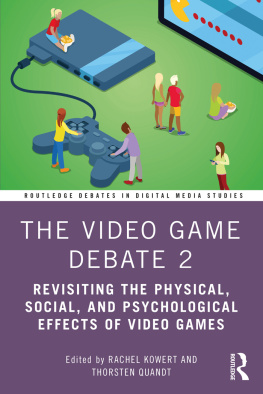
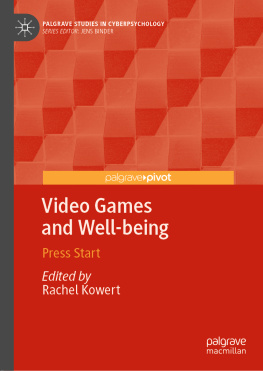

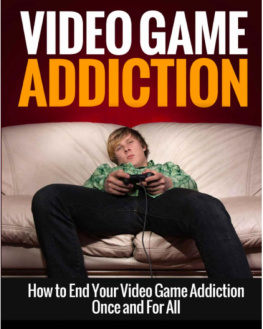

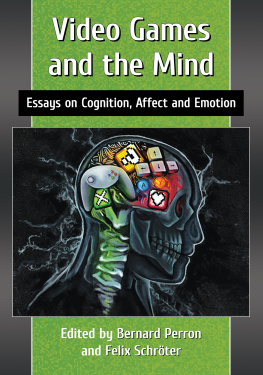
![Mark J. P. Wolf (editor) - Encyclopedia of Video Games: The Culture, Technology, and Art of Gaming [3 volumes]](/uploads/posts/book/279290/thumbs/mark-j-p-wolf-editor-encyclopedia-of-video.jpg)

